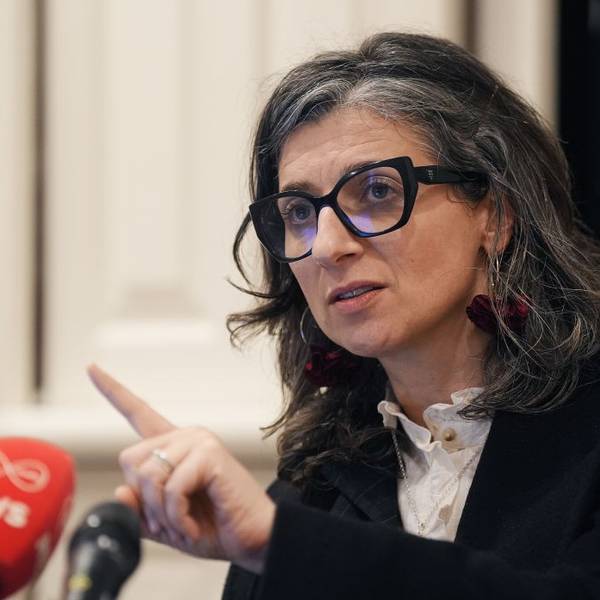William Schabas, the head of a United Nations war crimes inquiry into Israel's 50-day military assault on Gaza last summer, announced his resignation on Monday, citing mounting and "malicious" attacks from Israel, which has vigorously opposed the probe.
Analysts say that Schabas' premature departure, which comes just a month before the commission's findings are slated for public release, fits into a larger pattern.
"This is consistent with an Israeli strategy of deflecting attention away from their violations of international law and UN resolutions by focusing on those who expose those violations," Phyllis Bennis, senior fellow at Institute for Policy Studies, told Common Dreams. "They focus on the messenger hoping the world will ignore the message."
Schabas, a scholar and international law expert based in Canada, was appointed in August by the head of the UN Human Rights Council to chair the inquiry, which was mandated to investigate "all violations of international humanitarian law."
From the outset, the United States and Israel have objected to the investigation, and the latter even prohibited the UN team from entering Israel, thereby forcing researchers to correspond with Palestinian witnesses using electronic communications from Jordan.
Israel's opposition comes despite the fact that the inquiry is examining all violations against civilians, by Israeli as well as Palestinian forces.
Since heading the panel, Schabas has been the subject of fierce criticism from the Israeli government and its advocates, including the Geneva-based organization UN Watch. The publication Mondoweiss raised concerns as early as August 15 that the scholar was being subject to unfair treatment, including in major media outlets.
A recent complaint by Israel's UN ambassador Eviatar Manor, in which he cited Schabas' one-time consulting job for the PLO in October 2012 as a "conflict of interest," is being widely cited in media reports about the latter's move to step down.
In his resignation letter, which was obtained by Reuters, Schabas argued that this consulting was no different from other legal opinions he's given to organizations and governments across the world, noting that his curriculum vitae and blog are entirely available to the public.
"My views on Israel and Palestine as well as on many other issues were well known and very public," he wrote. "This work in defense of human rights appears to have made me a huge target for malicious attacks."
Bennis concurs: "Schabas is a well-known figure in international law. His opinions on international law are public. He talked about them during his confirmation process."
Immediately following the resignation, Israeli Prime Minister Benjamin Netanyahu released a statement calling for the entire inquiry to be scrapped. Meanwhile, Israeli Minister of Foreign Affairs Avigdor Liberman called the departure "another victory for Israeli diplomacy."
UN officials, however, say they are determined to move forward with publication of their findings.
Human rights advocates have raised concerns that, whatever the probe's findings, the United States will block any serious effort to hold Israel accountable.
Israel's attack on Gaza last summer killed at least 2,194 Palestinians, at least 75 percent of them civilians and over 500 of them children. Seventy-two Israelis, six of them civilians, also died in the conflict.
Israel destroyed over half of Gaza's hospitals and health centers and struck six UN schools sheltering Palestinians, including in cases where the UNRWA formally submitted coordinates of the shelters to the Israeli military.
Israel has been accused of committing possible war crimes during the offensive by Amnesty International, Human Rights Watch, and UN High Commissioner for Human Rights Navi Pillay.
"The Israelis have no substantive answer to allegations of human rights and international law violations that this commission and others have investigated," said Bennis, "so they are trying to discredit members of the commission."



